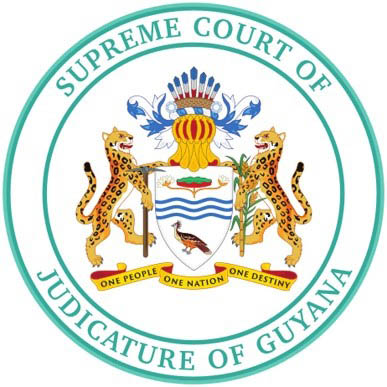Underscoring the societal and public health issues caused by drug addiction, which it says it recognizes lead to many drug addicts committing minor offences to support their habits, the judiciary is currently conducting a training workshop aimed at sensitizing participants about the objectives of the adult and adolescent Drug Treatment Courts (DTC) and the roles they would be required to play as drug court team-members.
This is according to a press release from the judiciary which has announced that the workshop is in preparation for the launch of the first Adolescent/Juvenile DTC which is expected soon; and will focus on the development of that new court, as well as the strengthening of the Adult Drug Treatment Court.
The workshop hosted by the Supreme Court of Judicature, with support from UNICEF, commenced on Wednesday April 20th and concludes today at the Regency Suites Hotel, Georgetown.
The judiciary said that sensitization and training locally, regionally and internationally have made it aware that treating persons with substance abuse disorders, is a more effective response than imposing punitive measures.
It said that treatment response gives such abusers the opportunity to enter long-term treatment programmes, through which they more easily accede to court supervision; while it has also been found that participants who complete the programmes are significantly less likely to be arrested again, compared to those who are sentenced with traditional punishments.
The release said that a DTC is essentially a “problem-solving” court that seeks to address the needs of each participant, including their drug use and the criminal behaviour associated with it.
“These courts are an important tool in the fight against drug addiction with a focus on the individual to ensure that not only justice is served, but that they receive the support that is necessary to help them become or resume being productive, law abiding persons,” the release further added.
It said that the overall aim of the workshop is to sensitize representatives and partner-agencies about the goals and objectives of the adult and adolescent DTCs and the roles they would be required to play as DTC team members.
According to the release, participants will be taught about substance use and the effects of different substances, the various stages of adolescent development, assessing risk, needs and resilience of adolescents in conflict with the law, the need for specialized interventions for adolescents, trauma and its impact on adolescents and related issues such as gender considerations.
In addition, participants are expected to be able to identify support-systems that are necessary for the success of the courts; including family support groups.
The first adult Drug Treatment Court was launched on October 21st, 2019, at the Georgetown Magistrates’ Court; in which Senior Magistrate Clive Nurse and Magistrate Rhondel Weever preside.
Inception
The release said that from the inception of the programme to March of this year, 15 persons—all males—between the ages of 18 to 60—had applied to participate, but that only four were originally accepted.
According to the release, one of those participants was unable to continue in the programme; but said that as of last month, there continued to be three participants—two in Phase 2 of the programme—and the other in phase 1.
Two of the three participants the release said, have been receiving outpatient treatment, while the other is on residential treatment; noting that “their illicit substances of choice were marijuana, cocaine, ecstasy and prescription medication.”
The release notes that the Covid-19 pandemic disrupted the programme “just as it was about to gain traction,” suspending operations in March 2020, but shortly thereafter recommenced utilizing virtual hearings.
In-person hearings, home visits and counseling it said have, however, since recommenced.
The release said that the coordinating facilitator for the workshop currently underway is Esther Best; Consultant, Institutional Strengthening Unit, Executive Secretariat of the Organization of American States’ Inter-American Drug Abuse Control Commission (OAS.CICAD).
The other facilitators are Dr. Travis Freeman; Drug Demand Reduction Project Director, and Wayne Hunte; Consultant, Ministry of Health.
Meanwhile, 64 participants are undergoing training at the workshop and they are drawn from the Magistracy and justice sector stakeholders and partners.
Those stakeholders the release said, include members from the Chambers of the Director of Public Prosecutions, Ministries of Home Affairs, Health, Education, Human Services and Social Security, and Culture, Youth and Sport; the Guyana Police Force, the Customs Anti-Narcotic Unit, the Guyana Legal Aid Clinic, the Linden Legal Aid Centre, the Guyana Forensic Science Laboratory, Phoenix Recovery Project, the Salvation Army and Social Life Issues.







